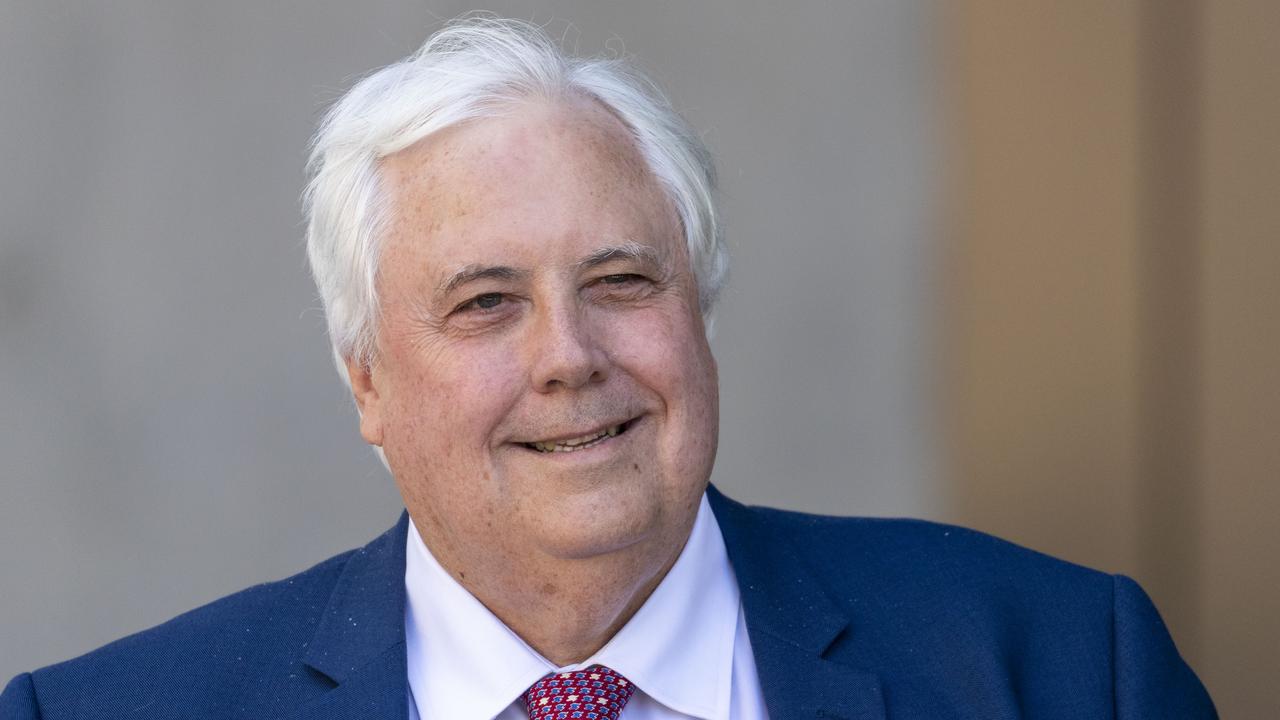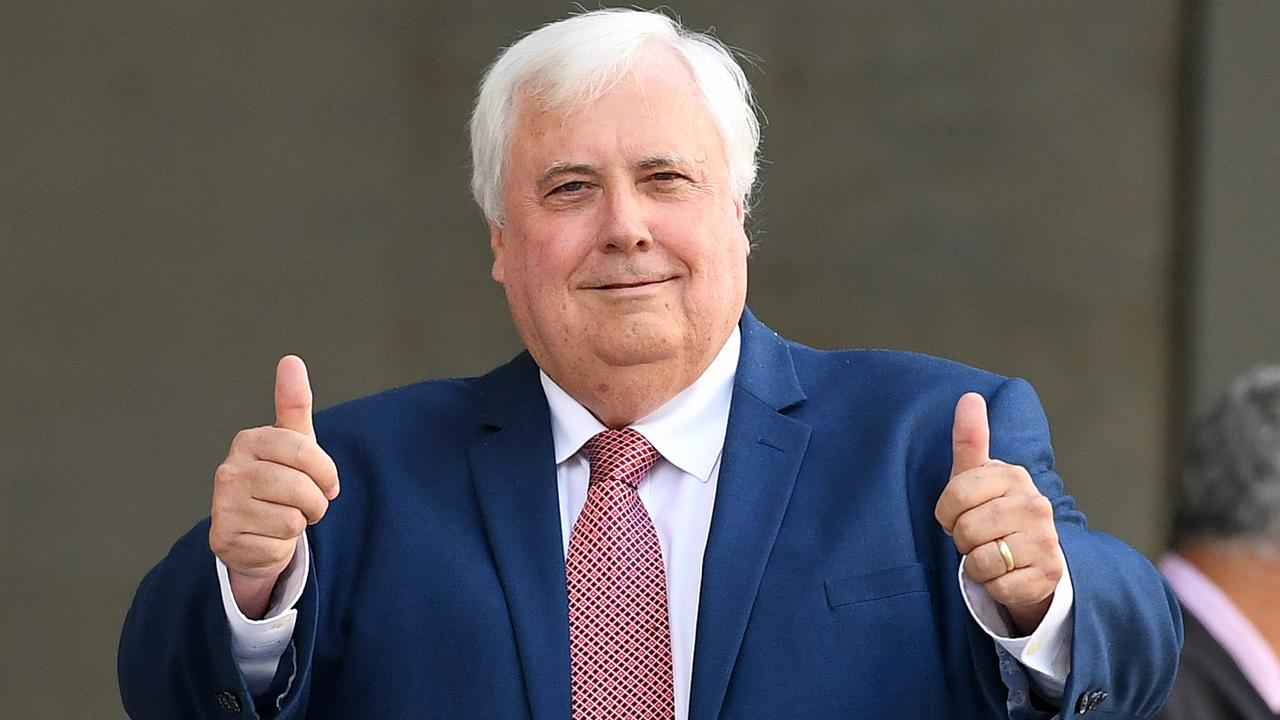Clive Palmer telephoned unexpectedly one evening. The call came days after he issued Supreme Court defamation proceedings against me, my then colleague Adam Shand and The Australian over articles exposing whoppers he was telling in public about receiving $500 million a year in mining royalties from the Chinese.
The Queensland tycoon, who has made bogus claims of billions of dollars in wealth an intrinsic and powerful part of his political and public brand, wanted it known that he was “not like Alan Bond”.
He explained that he had studied Bond’s phoenix-like rise and humiliating fall.
He had read Media Watch host Paul Barry’s book on the remarkable Perth businessman who made a paper fortune before his borrowings and fraud led to a colossal corporate collapse.
But Palmer stressed a fundamental and glaring difference in the financials underpinning their respective corporate groups.
Unlike Bond, Palmer told me, “none of our companies have debt, except for me, and we pay everyone”.
Palmer also admitted in this interview that he was wrong when he claimed, in a Melbourne media conference, that he was being paid $500m a year by the Chinese government-owned Citic Pacific in return for its extraction of iron ore from his tenements in Western Australia’s Pilbara region.
It was, perhaps, a self-proclaimed billionaire’s equivalent to a mere slip of the tongue. Or an early taste of the type of exaggeration for which Palmer became renowned.
But as he prepared for one of the most costly advertising campaigns in Australian electoral history, the founder of the Palmer United Party needed voters to know he was rich beyond their wildest dreams.
This myth has been the most enduring, and compelling, part of his make-up and public appeal. He peddled the myth for all it was worth and effectively translated it into political influence — even briefly controlling the balance of power in the Senate.
The private jets, the pledge to build a replica of the Titanic, the $30m spend on his electoral campaign, the millions wasted on silly titles and showy appearances with the Kennedy family — these stunts created grandiose perceptions and won him airtime.
The reality could not be more different. As Clive Palmer’s lawyers — many of whom have been happy beneficiaries of his hobby for spending millions on litigation — now grimly admit, a “drop-dead date” looms for his companies unless they receive cash from Citic.
The “drop-dead date” is a euphemism. In this case, it may refer to when receivers could be called in to take over his companies, particularly the Queensland Nickel refinery in Townsville where more than 500 staff are concerned they will lose their jobs.
Palmer was right when he pointed out he was largely debt-free, unlike Bond before his collapse. But blind Freddy can see all of Palmer’s major operating companies that report their financials are in serious strife. They have been distressed for years. All of them lose money. They can remain solvent only for as long as he is prepared to pump his own cash in as loans.
Palmer, who ripped cash out of these companies (and from Chinese funds that were meant to pay for a port) to pay for his political fantasies, will blame Citic Pacific for job losses.
Their dispute over the royalties he insists are payable should have been negotiated a long time ago in a boardroom, not a courtroom.
If Palmer were thinking strategically he would be calling in the mediators, not the silks, and hammering out a royalty deal that both sides could live with despite all the mud-slinging and name-calling.



